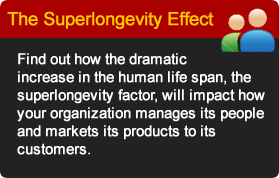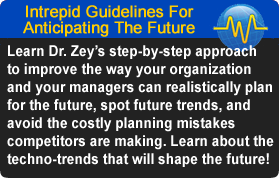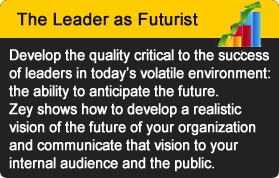The Expansionary Times
The Examiner
Millennials Big Losers in Stagnant "Recovery"
Millennials Big Losers in Stagnant "Recovery"
June 26, 20152:22 PM MST
According to recent surveys, the majority of Americans do not expect today's youth to live as well as previous generations.
Part of their pessimism emanates from the ongoing stagnant economy. Recent polls reveal that six in ten Americans believe the US is in an economic downturn or a recession.Two-thirds of Americans think the country is headed in the wrong direction.
Such polls are a natural reflection of shrinking wages, soaring taxes and job opportunities, as well as the rapid rise in the cost of automobiles, higher education and healthcare insurance deductibles and premiums skyrocket.
The economy shrank in the first quarter of 2015. An eye-popping 93 million Americans are not in the workforce, and nearly 10 million are officially unemployed. Gallup CEO Jim Clifton claims when we add in workers who have dropped out of the workforce, the unemployment rate is closer to 11 percent, not the 5.5 percent the government claims.
Millennials seem to be suffering in this economy worse than many other groups. According to the liberal-leaning Economic Policy Institute, barely half of the 2013 and 2014 college grads are working full-time jobs. The employed grads often must work in jobs that do not require a college degree. The EPI report said “a lack of job opportunities is either forcing young people to drop out of the labor force or take part-time jobs when they’re looking for full-time jobs.”
Young adults declining fortunes are impacting a number of areas of our society. In 2014 new home sales were down to 1963 levels. Due to the stagnant economy in 2014 the US fertility rate sunk to a Depression-era 1.8 children per female. For a nation to replace its population, the fertility rate must reach 2.1 children per woman of childbearing age. At its current fertility rate America will eventually experience population decline.
Presidential hopeful Donald Trump summed up what millennials and others repeatedly tell pollsters: “The American Dream is dead.”
In the midst of a bleak jobs situation for millennials, one wonders whether it is mere coincidence that commentators such as Ron Fournier of the National Journal have called for mandatory national service for every 18 to 28 year old. According to Fournier such a program would insure that young people are “invested in the nation’s biggest challenges,” including poverty, income inequality, and education.
Some critics wonder whether the true purpose behind drafting millions of millennials into national “service” jobs would be to reduce the official unemployment rolls without the private sector having to create one new job.
The future for millennials and succeeding generations will remain bleak unless substantive strategies emerge for building a robust economy in which young people can secure well-paying full-time jobs. This new prosperity will enable them to acquire new homes, cars, medical care and secure and stable future for themselves and their children.
Only then can we rekindle the belief in the American Dream.
New car gizmos can't stop per capita auto sales decline
New car gizmos can't stop per capita auto sales decline
November 2, 20157:35 AM MST
Car Makers Hope to Boost Sales with Innovations
Photo by Justin Sullivan/Getty Images
For the last several years car manufacturers have been trying to attract car buyers by equipping their new vehicles with a plethora of dazzling innovations such as rear-view cameras, built-in night vision,and global positioning systems.
Judging by per capita new car sales figures, these efforts have largely failed. Americans are far less likely to buy a new automobile than they were just a few decades ago. Population-adjusted car sales in the US have been declining since 1979, and are now a whopping 28% lower than they were almost four decades ago.
The reason for stagnating sales is quite clear: The majority of Americans simply do not have the financial wherewithal to afford new cars.For the last several years citizens have seen job opportunities disappear and wages shrink, while taxes, higher education costs and healthcare insurance premiums and deductibles have skyrocketed.
Worse, Federal Reserve numbers reveal that the US economy is slowing dramatically. The Fed announced that it expects third-quarter GDP growth to be revised down to an anemic 1.0% annual rate. Although the recession ended in 2009, nearly six in ten Americans believe the U.S. is still in a recession or economic downturn, according to recent polls.
According to a report by mega-bank HSBC, global trade is shrinking, down by -8.4 percent year after year, a decline usually found during recessionary periods. While many have been quick to blame the global economic decline for America's recent economic woes, a strong case can be made that the deteriorating US retail environment is actually exacerbating the global economic decline.
US and global manufacturers are learning that it's hard to sell cars, or any other item for that matter, in an environment in which over 102 million Americans of working age are not employed and those who do have jobs see their wages and take-home pay shrink.
America needs a solid strategy for building a prosperous economy that provides Americans well- paying full-time jobs that enable them to acquire new cars and homes. Such policies must include a commitment to reviving American manufacturing and energy sectors and nurturing a regulatory and tax environment that unleashes, not stifles, personal creativity and innovation.
Car companies hope to boost sales with a new wave of gizmos."Connected car" technology will soon enable vehicles to exchange information about speed, location, braking, direction of travel, and lane changes. Vehicle-to-infrastructure (V2I) systems will tell the driver when to take a detour to avoid congestion. New apps will alert drivers to ice and other road hazards..
Until the average American's economic condition improves, he or she will resist the temptation to purchase a new car, regardless of how many attractive technologies and gizmos manufacturers add to these vehicles.
THYNC brings electronic mood enhancement to consumer market
THYNC brings electronic mood enhancement to consumer market
August 24, 201511:53 AM MST
THYNC enters electronic mind-brain enhancement consumer market
Photo by Sean Gallup/Getty Images
A new device, Thync, promises to provide its users with the ability to increase their energy levels or create a sense of inner calm with a mere flick of a button. The device, which you attach to your head and operate via your smart phone, delivers to specific areas of your brainelectronic pulses that can induce a variety of mood changes, and might even improve your powers of concentration.
The use of electronic stimulation of the brain to influence mood and neural functioning has been ongoing for at least the last few decades. The process, generally referred to as “transcranial magnetic stimulation” (TMS), delivers pulses of energy a few centimeters into its wearer’s brain, inducing electrical activity in brain cells.
Neuroscientist Mark George and colleagues at the Medical University of South Carolina, as well as other researchers, have found that such pulses delivered via a device connected to a TMS machine can increase the pulse-recipients’ reaction time on tests. TMS has been found to be effective in treating neuropathic pain, depression, and other psychiatric disorders. TMS’ techno- cousin, transcranial direct-current stimulation, or tDCS, has been found to improve patients' vigilance, intelligence, learning and memory. In many cases tDCS has been used to relieve chronic pain and the symptoms of depression and treat, Parkinson’s and schizophrenia. Hospitals such as Beth Israel Deaconess in Boston and Beth Israel in New York have used electronic stimulation technologies to treat chronic pain and depression.
The Thync module brings the exciting potential of electronic brain stimulation to the consumer field. The module, which is a curved white apparatus, connects wirelessly to a smart phone using Bluetooth. The actual module attaches to specific points on the head via two adhesive strips you first place on the module itself.
The user then powers the module and pairs it to the smart phone. This starts a session lasting five to twenty minutes during which the device delivers low-level pulses of electricity into your head. The user can adjust the level of current delivered to the head.
Thync comes with two basic settings: a “calm” vibe and an “energy” vibe.
Journalists and tech reviewers are generally wary of the hype surrounding most new technologies. So I was surprised at the overwhelmingly positive response of such tech-savvy writers. If the reviews are to be believed, Thync lives up to its creators’ claims.
A Wall Street Journal reporter stated that “I was able to use Thync instead of that second cup of coffee to boost my energy in the afternoon. Last Wednesday, a Thync vibe even coaxed me out of a late-afternoon lull to exercise”
One writer was more effusive in his endorsement of the Thync experience. He stated emphatically that “it can push me from an anxious, over-thinking mood to one where I'm cool, collected and laid-back like a THC-infused Rastafarian.” And when he feels “sluggish” or unmotivated, “Thync can also peel that layer away, like the sun burning a morning fog off of my consciousness.”
A New York magazine article on Thync was entitled “I Tried a Brain-Zapping Gadget and It Made Me Feel High.” Enough said. When she put Thync on “calm,” office colleagues noticed a change in mood, remarking on how “mellow” she seemed.
There is little doubt that such technologies will find their way into people’s personal and work lives. Certainly, everyone is looking for the competitive edge, in school and at their
jobs. Researchers believe that the use of TMS administered to someone who has taken a smart pill such as Provigil could boost a person’s intelligence immeasurably. Some imagine that in as little as ten years from now you will be able to visit a “brain spa” to get a temporary boost in your intelligence quotient via TMS.
Evidence shows that a certain segment of users report little if any effect on their energy level or mood. The company says that poor results will occur if the user places the strips and the gadget on the wrong part of the head. And it might just be the case that some users are physically or psychologically more receptive to mood-changing technologies.
The company provides a 30-day money-back guarantee to purchasers, a welcome perk considering that Thync costs $299, and that’s not counting the cost of the adhesive strips.
The Thync device is opening up a new frontier in the field of human enhancement. We can be certain that before long other more powerful devices will appear on the market that will empower individuals to expand their intellectual and creative potential.
News search engines miss poll showing Trump, Carson beating Hillary
News search engines miss poll showing Trump, Carson beating Hillary
December 12, 20159:09 AM MST
Google and other search engines misses key Presidential poll
Photo by Rob Kim/Getty Images
Major news search engines completely missed a new Morning Consult blockbuster poll of 2047 registered voters showing DonaldTrump, Ben Carson and others besting Hillary Clinton in the general election.
Technology professionals have long criticized the reliability of search engines, and this incident validates their misgivings. News search engines such as Google News, Yahoo News, Bing, and AOL completely failed to spot the December 10 Huffington Post poll showing both Donald Trump and Ben Carson beating Clinton 45 to 40 percent and Rubio topping Clinton 41-40 in the general election. In the poll Hillary ties former Florida governor Jeb Bush at 41-41, and Chris Christie at 40-40. The only major GOP candidate Clinton does beat is Ted Cruz, by two percentage points.
The HuffPo poll the search engines failed to detect also contained some disturbing news for the President. According to the Huffington Post, only 38 percent of Americans approve of Obama's performance as president, and 59 percent disapprove of the way he has performed. His dismal approval ratings mirror Americans' mood about their country, with 74 percent saying America is going in the wrong direction.
Economics plays a big role in Obama's poor approval numbers. According to a Pew Research poll, the middle class has lost ground under the Democrat president. In fact, more and more Americans are falling into what the Census defines as the lower economic class.
Voters usually blame the party in power for poor economic conditions. Couple that with the fact that 54 percent of Americans give Hillary Clinton an unfavorable rating and it is not hard to see why she is trailing many Republicans in the race for the White House.
Trump's numbers will surprise many critics, given the fact that both left-progressive and establishment conservative media sources such as Fox News and the Wall Street Journal continue to criticize the candidate's statements on everything from terrorism to immigration. The Huffington Post survey seems to suggest that such criticism not only has no effect on Trump's popularity with voters but in fact solidifies it.
Politicians, voters, and social and political scientists expect search engines such as Google News and Yahoo News to provide all the information they need on candidates and their status in a variety of polls. Yet entering terms such as "hillary," "poll," "trump" and "huffington post" into the Yahoo News or Google News search engines will not produce information on this Huffington Post poll. As far as these search engines are concerned, this particular poll never happened.
As such incidents illustrate, professionals and members wanting accurate and comprehensive information on politics and the economy would be well advised to dig deeply and not rely exclusively on the more established news search engines.
DR. ZEY'S PRESENTATION TOPICS


